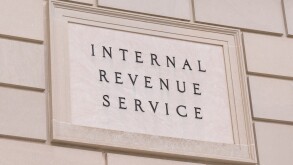In light of the economic fallout from COVID-19, the New Zealand government has fast tracked changes to its foreign investment consent rules, including some tax measures.
Background
Previously, New Zealand's foreign investment consent rules did not specifically provide for tax matters to be taken into account when screening foreign investment. A consultation document issued in April 2019 on reforming the Overseas Investment Act noted a concern about "overseas persons acquiring sensitive New Zealand assets and not paying enough tax in New Zealand" and outlined some reform options for consultation.
The government's in principle decisions following consultation included a decision to require aspects of a person's tax compliance history to be taken into account as part of the investor test, and to require disclosure to Inland Revenue of certain details regarding a proposed investment structure and its expected tax consequences.
Consideration of tax compliance history as part of the investor test
New Zealand's overseas investment regime requires overseas persons to obtain consent from the Overseas Investment Office prior to investing in significant business assets or sensitive land. To obtain consent, the overseas person – or the individuals with control, defined broadly to include shareholders with 25% or more ownership, directors, or in some cases senior management – must satisfy the ‘investor test’.
Currently, the scope of the investor test is broad, including a good character test that requires consideration of any offences or contraventions of the law, and any other matters that reflect adversely on a person's fitness to hold the particular overseas investment.
The fast tracked amendments enacted in the Overseas Investment (Urgent Measures) Amendment Act 2020 replace the good character test with a more targeted list of factors that decision makers, considering an application for investment consent, should take into account. These factors will include the following matters relating to tax compliance:
A penalty imposed within the preceding 10 years for taking an abusive tax position (defined under New Zealand law as an unacceptable tax position taken with, or in relation to an arrangement that has, a dominant purpose of avoiding tax) or for tax evasion or a similar act, or any penalty equivalent to the civil penalty for taking an abusive tax position or for evasion, imposed by a foreign jurisdiction within that period; and
Outstanding unpaid tax at the date on which the application is made of NZ$5 million ($3.27 million) or more, or equivalent in a foreign currency.
New requirement to disclose tax information
A proposed power for the making of regulations requiring a prospective investor to disclose certain tax-related information, along with an application for consent, is being progressed through inclusion in the Overseas Investment Amendment Bill (No. 3).
The regulations are expected to require a prospective investor to disclose a description of any proposed debt and equity funding for the investment. This includes whether a hybrid instrument or hybrid entity will be used, any cross-border related party transactions, any relevant tax treaties and whether a binding ruling will be sought from Inland Revenue.
While the provision of some of the information listed above should be straightforward for a prospective investor, other required disclosures will require careful consideration of New Zealand's tax laws. For example, New Zealand's anti-hybrid mismatch rules would need to be considered to determine whether the proposed investment structure uses a hybrid instrument or hybrid entity. The anti-hybrid mismatch rules are complex and disclosure may require consideration of the up-stream ownership or financing structure of the investor.
The New Zealand Treasury has stated that the disclosed information would not be used in deciding whether consent should be granted, but would be provided to Inland Revenue to monitor the person's compliance with New Zealand tax law and to help Inland Revenue's broader policy and audit functions.
Next steps
The investor test, which includes consideration of a prospective investor's tax compliance history, will come into force at a later date set by Order in Council (at the latest by June 2 2021).
A closing date for submissions to the Finance and Expenditure Select Committee on the Overseas Investment Amendment Bill (No. 3), which includes the proposed tax disclosures regulation-making power, is yet to be set. New Zealand has a general election scheduled for September 19 and the bill is not expected to be enacted until the new Parliament sits following the election.
Brendan Brown
T: +64 4 819 7748
E: brendan.brown@russellmcveagh.com
Matt Woolley
T: +64 4 819 7303












